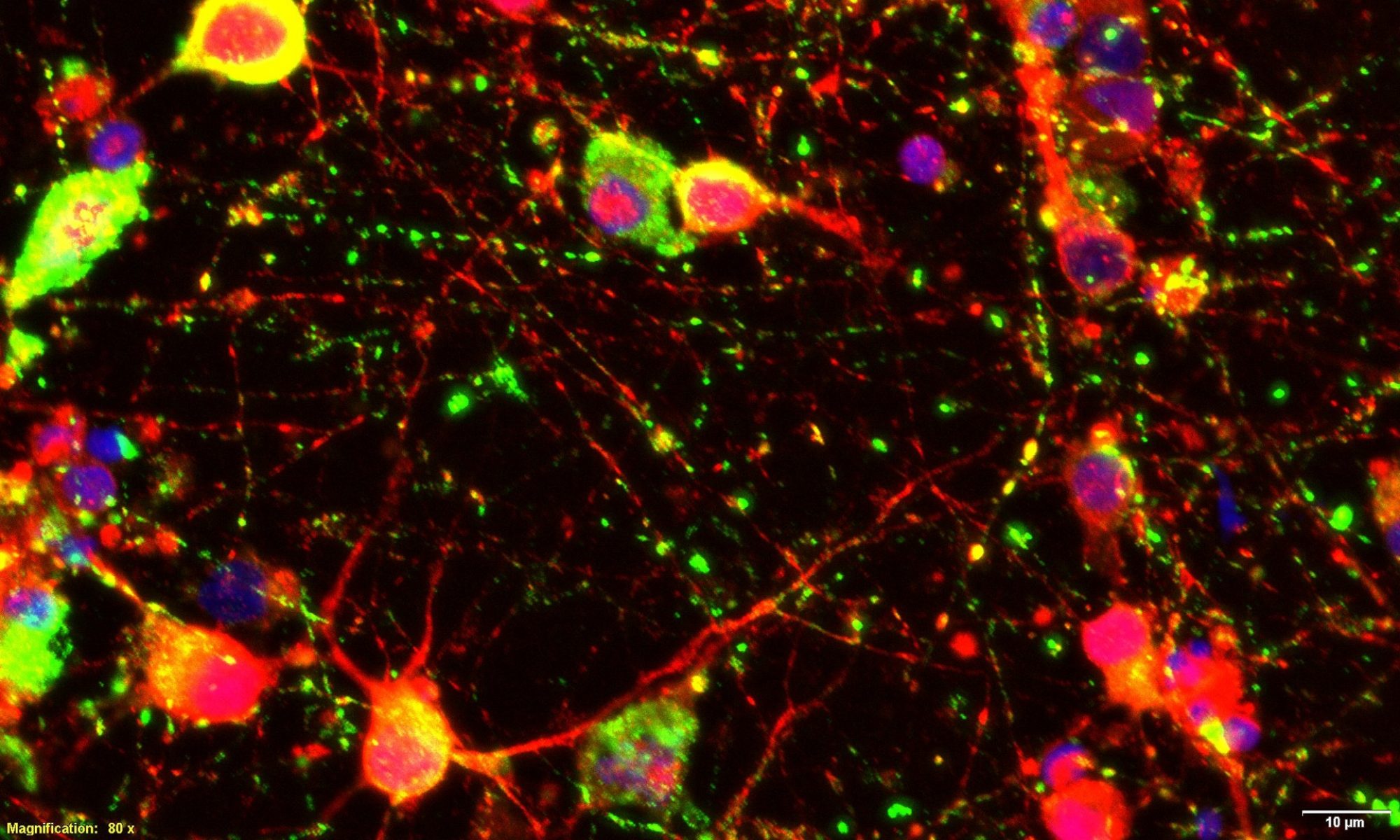
The Thompson laboratory has been actively engaged in investigating the fundamental molecular and cellular events that underlie how the mutant Huntington’s disease gene causes degeneration of specific brain cell populations to induce motor and cognitive decline and premature death of patients with the ultimate goal to develop new therapeutic approaches. HD was one of the first neurodegenerative diseases for which a genetic cause was determined, and has served as a paradigm for researchers to study other such diseases. HD is an autosomal dominant neurodegenerative disease characterized by specific regions of neuronal dysfunction and loss, most notably of neurons in the striatum and cortex. The primary cause of HD is the expansion of a CAG triplet repeat encoding a polyglutamine (polyQ) tract within the amino terminal portion of the Huntingtin (Htt) protein. The mutation disrupts many cellular processes, including transcriptional regulation, vesicular trafficking, mitochondrial function, autophagic clearance, and protein modification, among others. The laboratory also focuses on understanding casual mechanisms that underlie Amyotrophic Lateral Sclerosis and more recently, X-linked Dystonia-Parkinsonism with the goal of developing treatment options for the disease. The research benefits from the integrated use of patient iPSCs and mouse models of disease together with the studies of RNA biology and network-based bioinformatics.
